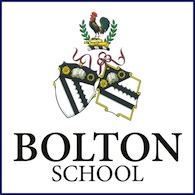I KEEP six honest serving-men
(They taught me all I knew);
Their names are What and Why and When
And How and Where and Who.
The Elephant’s Child by Rudyard Kipling
Imagine we put the serving men to use to consider the current discussion (indeed there always does seem to be a current discussion) about school exams. Over the summer months from time to time I intend to post a blog about each of these questions in turn. But for now in taking the register I have noticed the absence of serving man WHY. No one discusses why we do exams!
Certainly the debate includes who should examine û a focus on the three exam boards, how standards are judged between them, let alone between subjects and whether one national board would be a good idea (it wouldnÆt, as it stifles any possibility of curriculum development).
If we imagine that where covers the final exam versus coursework debate then that serving man is fully employed. There are the issues of standards, whether teachers can teach as well as test in an environment when results are used to measure them as well as the students and whether final exams or coursework best test the skills that employers want to have judged in students.
How could represent the modular versus linear debate. Modules have arrived in some A level subjects, spread to all, become linked with AS, which has become linked with University entrance, spread to GCSE, now been removed from GCSE and caused worries about standards with the pressure on exam boards from setting and marking so much and the culture of resits. Serving man how must be exhausted.
When is also a common focus for discussion. Why are we planning to have GCSE exams at 16 when the school leaving age is due to be raised? Should some form of summative assessment be made at 14, opening up the 14 to 19 phase of education?
Serving man what is often absent and it is good to hear that this is entering the current version of the debate. Deciding the correct groups to own the subject content, at A level especially, is a hugely important issue. School subjects are not well defined and it is clearly not for exam boards, working from core specifications set down by committees, to decide what is taught. Where they exist professional bodies should own subject content, drawing together the Universities, business and school aspects of their subject associations. It is good to see Gove acknowledges this in his letter to OFQUAL. This is an exciting challenge for independent school teachers to engage in, since they are very often subject experts concerned about their academic subject as well as transferring a love of that subject to the next generation.
But where is serving man why? Absent, with the school secretary ringing home to see where he is. Of course in one way why is very prominent because everyone who discusses exams knows why they think exams are important. And to each person the reason why we do exams is so obvious that it does not need to be mentioned. To my mind this is the problem that leads to the endless discussions of why, what, where, how and what. These will never reach an end until there is a serious debate about why. Just to take a few possibilities. We might think exams help students to learn their subjects. We might think they measure performance for university selection. We might think they help the selection or the training process for the world of work. We might imagine they help focus teachers and schools on the job in hand and work seriously. We might think they measure school and teacher performance. We might challenge and say it is all of these things, but if we do the exam system cannot possibly deliver for so many masters.
The fact of the matter is the current examining situation has just evolved almost by accident. It is not the same all over the world and it is not the same in all successful countries as measured on international educational comparisons. There were civil service exams at the time of the empire, there were exams used for the Victorian version of performance related pay for teachers (later abandoned), which eventually led to the grammar school certificates of education, at Special, Advanced and Ordinary level, which then collided with mass education, entitlement, raising of the school leaving age, the national curriculum, SAT testing, GCSE and the current day. At no stage has the reason why we examine been made clear.
I urge those who lead the national debate to start with the discussion of why we do exams û then what and where and when and how and who we test will seem so much more obvious.

Leave a Reply